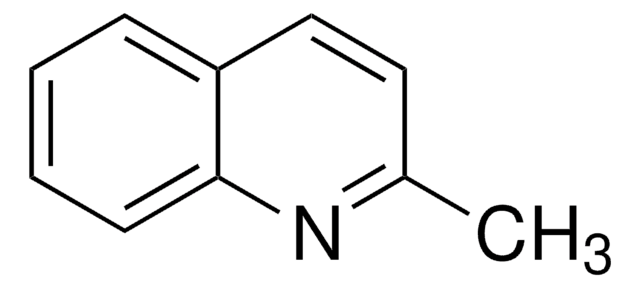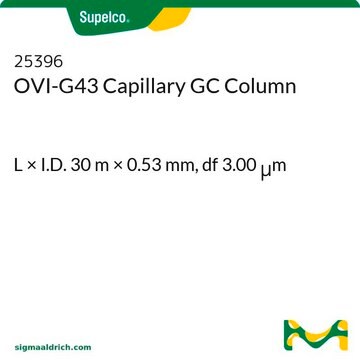24256
SPB®-624 Capillary GC Column
L × I.D. 60 m × 0.25 mm, df 1.40 μm
Synonym(s):
SPB-624, 60M .25MM 1.4UM
About This Item
Recommended Products
material
fused silica
Agency
EPA 524.2,0030,624,8260,OLM04.2 VOA
meets requirements for USP G43
suitable for EPA 601
parameter
≤25-250 °C temperature (isothermal or programmed)
Beta value
45
df
1.40 μm
technique(s)
gas chromatography (GC): suitable
L × I.D.
60 m × 0.25 mm
application(s)
environmental
food and beverages
pharmaceutical
column type
capillary intermediate polar
Looking for similar products? Visit Product Comparison Guide
General description
USP Code: This column meets USP G43 requirements.
Phase:
- Bonded
- Proprietary
- ≤0.32 mm I.D.: Subambient to 250 °C (isothermal or programmed)
- ≥0.53 mm I.D.: Subambient to 230 °C (isothermal or programmed)
Application
Other Notes
Legal Information
Storage Class Code
13 - Non Combustible Solids
WGK
nwg
Flash Point(F)
Not applicable
Flash Point(C)
Not applicable
Choose from one of the most recent versions:
Already Own This Product?
Find documentation for the products that you have recently purchased in the Document Library.
Related Content
This page is intended to make it easier to find the consumables you need based on the analytical method you’re using. Methods included on this page come from the EPA, Standard Methods and ASTM.
Our team of scientists has experience in all areas of research including Life Science, Material Science, Chemical Synthesis, Chromatography, Analytical and many others.
Contact Technical Service






